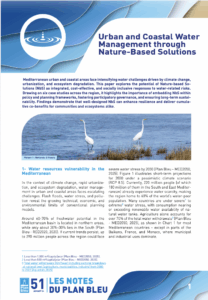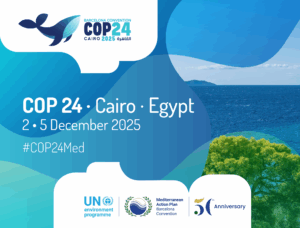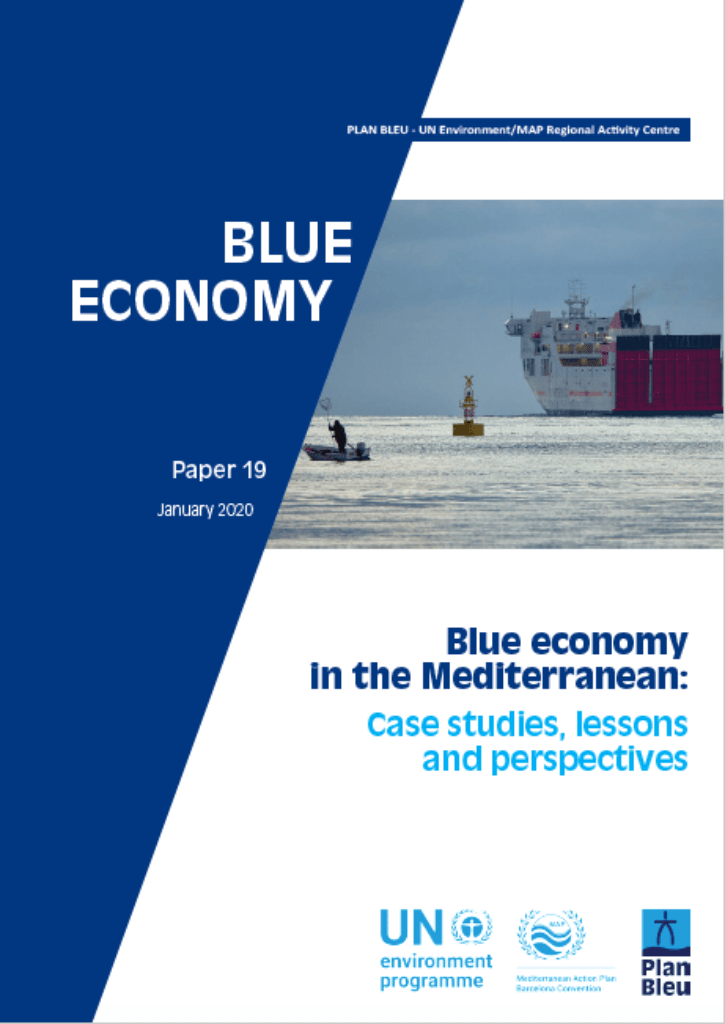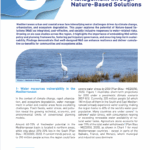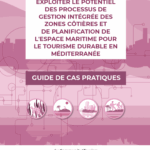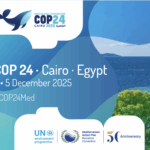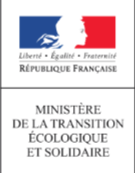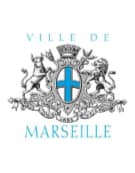The blue economy is a low polluting, resource-efficient and circular economy based on sustainable consumption and production patterns, enhancing human well-being and social equity, generating economic value and employment, and significantly reducing environmental risks and ecological scarcities. The blue economy integrates a diverse range of economic activities from coastal and marine tourism to maritime transport, fisheries and aquaculture, and offshore renewable energy. Its potential contribution to sustainable job creation, food security, clean energy supply, circular economy and sustainable mobility is huge.
In the framework of the « United Nations Environment Programme (UNEP)/ Mediterranean Action Plan (MAP) 2018- 2019 Programme of Work », the UNEP/MAP Secretariat, through its Plan Bleu/Regional Activity Center, was tasked to identify « case studies » with the ultimate aim of providing a Mediterranean perspective to the main blue economy issues and challenges and developing recommendations for a transition towards a Mediterranean blue economy in line with SDG 14.
The specific objectives are: i) to set out the current overall policy and socio-economic picture for the Blue Economy as well as future perspectives in the Mediterranean; ii) to illustrate the opportunities offered by the Blue Economy with a limited number of case studies drawn from various geographic areas and sectors; iii) to establish strategic directions for the future development of Blue Economy in the Mediterranean region. According to a vast literature, “case studies” are particularly suitable for understanding the interaction between contexts and phenomena through hypotheses that explain the nexus between given facts and observable results. Based on a non-exhaustive group of field experiences in different maritime sectors and geographic areas, the Report highlights the opportunities and challenges that the blue economy offers in supporting sustainable development in the Mediterranean region. As a general reflection on the lessons learnt/recommendations from the “case studies”, several KEY MESSAGES and STRATEGIC DIRECTIONS are suggested for the development of the blue economy in the Mediterranean area.
The case studies presented represent a small, though significant, percentage of the projects and initiatives engaged in promoting a Mediterranean blue economy transition. Willingness to share knowledge, experiences, tools, results and even failures is crucial to promoting such a transition.
Over one hundred blue economy stakeholders have been contacted, and forty case studies have been finally selected. The case studies herewith presented have been submitted by national authorities, regional authorities (Government of Catalonia, Lazio Region, Andalusia Region, South Region of France, Region of East Macedonia and Thrace, Marche Region, Region of Thessaly), intergovernmental organizations, Interreg MED communities (PANACeA, BlueTourMed, and InnoBlueGrowth), the WWF Mediterranean Marine Initiative, national parks (Al Hoceima, La Maddalena, Taza), ports (Porto Antico Genova, Port of Vigo), research institutes, universities, business sectors and innovative SMEs active in maritime sectors, and international financial institutions (The World Bank and European Investment Bank). Each case study presented is the result of direct exchange with the promoter(s) and, in some cases, also the beneficiary(ies).






